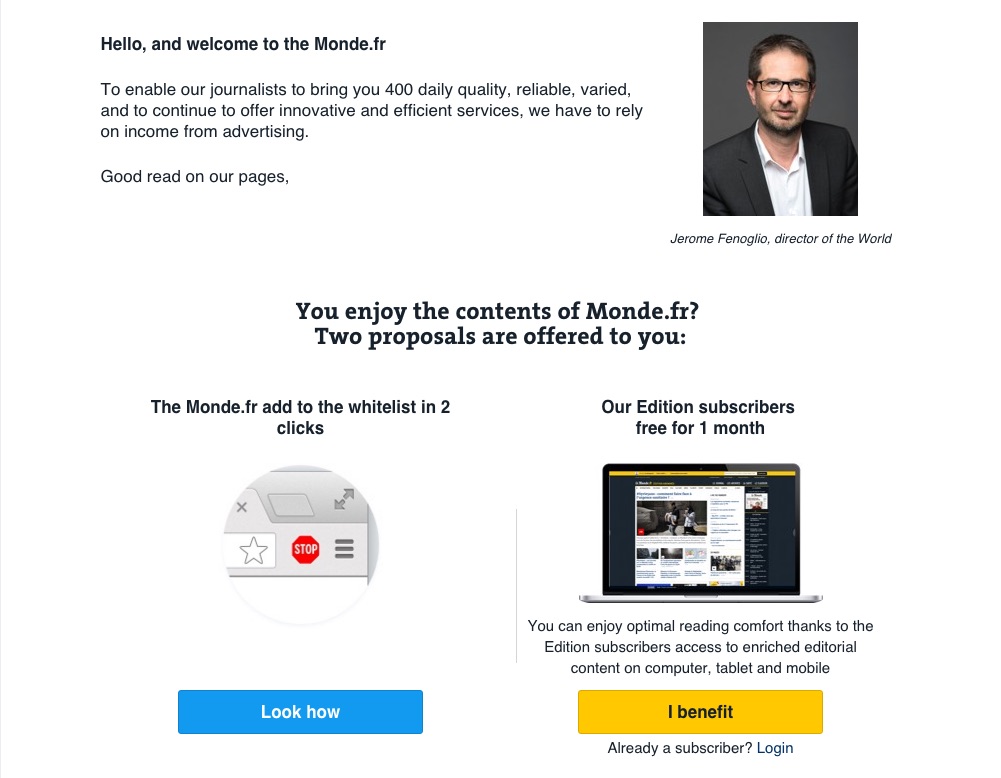Secure your place at the Digiday Publishing Summit in Vail, March 23-25

To fight ad blocking, publishers are finding strength in numbers.
Urged by the French online publishing trade body Geste, a group of French publishers is trialling a week-long experiment to deter ad blockers, starting Monday March 21.
Those involved include Le Monde, Le Figaro, RTE, Le Parisien, L’Equipe and music platform Deezer. However, unlike the ad blocking collective approach taken by Sweden’s publishers, in which the IAB Sweden is asking publishers to block content for a whole month for those who have ad blockers installed, Geste has not set a standard.
Instead each publisher is taking its own approach. A Geste spokesperson, which announced the joint approach in December, said it has “invited content publishers and online services to deploy an educational device over a week, but some editors may decide to maintain the device any longer.”
Sports daily L’Equipe is taking the hardline approach, making people disable their ad blocker in order to read the content.

Daily tabloid Le Parisien is also blocking content, showing users a message saying that “20 percent of readers are blocking ads. We wish to inform you that advertising is our main source of income.” To continue reading users must either whitelist, log in to the site, or get an ad-free experience by paying €1 ($1.12) for three months. However, Research from Ipsos earlier this month showed that the number of French Internet users with ad blockers installed is closer to 33 percent.

Daily newspaper Le Monde has taken a similar approach to the Guardian, showing a message from the editor-in-chief, Jerome Fenoglio, saying “To enable our journalists … we must be able to rely on advertising revenue.” Users can then click through to read the article, or whitelist the site, or pay €1 for one month for a “limited” ad reading experience.

The micro-payment approach is also favoured by German publisher’s Bild and Gruner + Jar, who are seeing positive results.
More in Media

The case for and against publisher content marketplaces
The debate isn’t whether publishers want marketplaces. It’s whether the economics support them.

Urban Outfitters shifts its influencer strategy from reach to participation
Me@UO is Urban Outfitters’ new creator program leverage micro-creators with smaller, engaged communities that are passionate about the brand.

Media Briefing: Without transparency, publishers can’t tell if Google’s Preferred Sources feature benefits them
Six months in, Google’s Preferred Sources promises loyalty-driven visibility, but leaves publishers guessing at the traffic impact.





